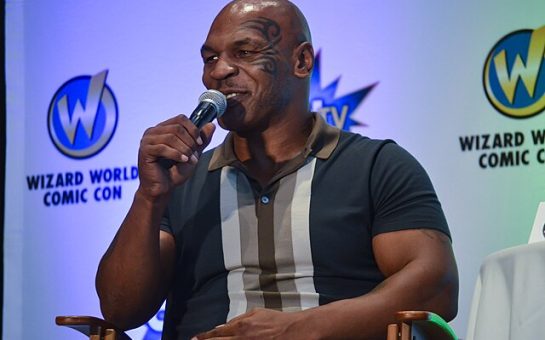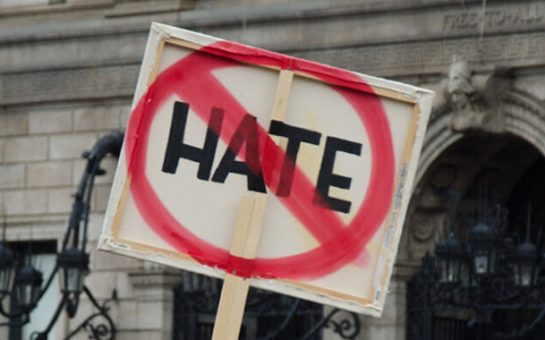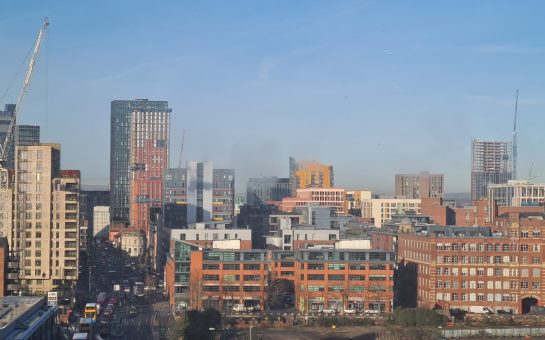A Manchester councillor has dismissed claims that Greater Manchester Police are the worst in the country for breaching social media guidelines – by claiming figures are being ‘blown out of proportion’.
Withington Councillor Chris Paul has slammed statistics which revealed hundreds of police employees have been investigated for misconduct over social media sites during a five-year period.
The figures, obtained in a Freedom of Information Act by the Press Association, showed a total of 828 cases were reported across the UK, 88 of which regarded GMP. But Mr Paul has backed the third largest police force in the UK to continue using social media, and is not shocked by the findings.
“I’m not at all surprised because the GMP use social media far more than most of the other forces,” the Labour councillor told MM.
“The other two forces that were also in the top three also had very high social media usage but it just tails off after those three.
“I think Greater Manchester’s social media usage is nearly three times as much as the fourth force in the rankings.
“If they do 100 tweets a week just from the city centre account, 100 tweets a week from the main account, some from the suburban accounts as well, you’re going to get some that are complained about – so I wasn’t surprised there were more complaints about Manchester than other places because they use social media a lot more.”
The second most investigated force was West Midlands with 74 cases, followed by the Met with 69 and only 13 forces reported ten or fewer investigations between January 2009 and February 2014.
Mr Paul criticised the way the media have handled the figures, including MM and in particular the Press Association, for a lack of distinguishing between serious incidents – such as those regarding homophobia or racism – and those which were minor.
“They [Press Association] picked out a few serious and terrible issues of homophobia or racism but none of those were connected to the GMP and there is no distinction between the serious and not serious issues,” he said.
“Out of 800 complaints across the country they are only able to pick out 20 or so that have serious newsworthy aspects to them which just seems to be blowing it out of proportion.
“I’m particular concerned that everywhere is saying Manchester are top of the league but they don’t say that Manchester is way ahead of the game for using social media.
“They don’t differentiate between the serious things, which are terrible and must be stopped and the officers disciplined, made aware of the problems that they have caused and how they are breaching standards that are expected.”
.@gmpolice In my view all media I’ve seen on police @twitter/@facebook issues have been innumerate and illogical. Journos need to wise up.
— Chris Paul (@ChrispLOL) August 20, 2014
An array of offences were reported in the FOI, ranging in severity and several forces noted investigations into comments deemed homophobic, racist or ‘religiously aggressive’.
Mr Paul cited that all the GMP Twitter accounts combined have a total of a third of a million followers and that this ‘gives them a fantastic opportunity to connect’ and help do better work in the community.
The councillor also answered claims that such a presence on social media by the GMP would interfere with their work out on the streets of Manchester.
“I don’t know how much time you think it takes do 100 tweets a week but I do a 100 tweets a day when I’m on the bus or a tram or have ten minutes free,” Mr Paul said.
“There’s not somebody in GMP who tweets all day and does nothing else and it’s not preventing me from doing something else.
“It is basically one tweet a year for every employee and it is a schoolboy error because none of the press are considering the proportionality of what the numbers mean in real life.
“If you think how many tweets they have done, it is nothing really.”
One Twitter user is not convinced however and posted: “So while all this is going on people in Ancoats get robbed, mugged, shops broken into…priorities eh from GMP.”
But Mr Paul blasted this claim as ‘absurd’.
“It’s an absurd thing for that person to say in the comments, they perhaps don’t know any better and can’t count, but they are being misled by the way the press are handling it,” he said.
“If you look at other newspaper comments it is full of people making unreasonable, illiterate and innumerate points.
“To suggest that it is stopping someone being out on the beat or doing their normal work, stopping speeding cars, preventing burglaries, it’s not doing any of those things and it may in many cases help or make people aware about those issues.
“It’s not stopping any police officer from doing their job but it may help them to do it in their area.”
Mr Paul also praised GMP’s approach to social media, which ranges from extensive Twitter coverage to guidance videos and appeals on YouTube.
He said: “It’s great that Manchester is ahead of the curve on this and are one of the top three in the country.
“The fact is there are more complaints because of the volume but the fact there’s no serious complaints suggest they are really trivial things that have been done.
“If you talk to a PCSO or police officer it is likely that if you talk to them a lot that they are going to say things that are a little bit out of order sometimes.
“No, this is not acceptable but they get a word from somebody and hopefully won’t do it again, that’s the nature of communicating with people.”
So, only 2 of 88 complaints about @gmpolice social media were serious. 72 @twitter accounts with c 350k followers doing a #lot of good IMO.
— Chris Paul (@ChrispLOL) August 20, 2014
However, Mr Paul admitted that people do make mistakes and that some complaints may be down to trivial matters, such as spelling errors.
“It is acceptable it’s normal, human beings make errors but the most important thing is they learn from these errors,” added Mr Paul.
“These are human beings doing a busy job and they will make a spelling error or something that is misleading and that might be the bulk of the complaints we have got.”
Deputy Chief Constable for the GMP, Ian Hopkins, supported the use of social media by the force believing that the benefits outweigh the negatives.
“Social media is a fabulous tool for police officers and has really improved the way in which we communicate with the people of Greater Manchester,” he said.
“Over the last five years, GMP has been at the forefront of UK policing in terms of developing its social media policy.
“As a result, we now have more than 161,000 Twitter followers, 85,000 Facebook followers and have won numerous awards for our use of social media which shows there is a real appetite among people to engage with police using social media.
“The benefits of using social media far outweigh the very few instances where officers get it wrong.”
Mr Paul agreed and believes social media plays a pivotal role in policing in the 21st century.
“It [social media] is not a bad thing, it is a good thing,” he said.
“I would like the reporting of this to be more proportional and also to not lose sight of the benefits of police forces using social media which is fantastic.”
Image courtesy of GMP via YouTube, with thanks.



